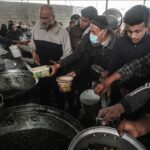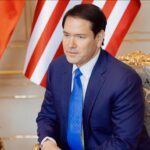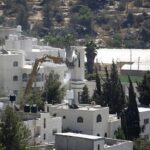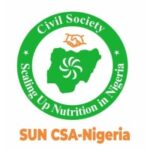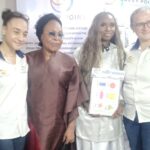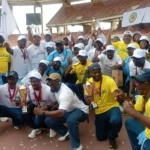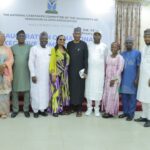Nigeria is a signatory to the United Nations Declaration on the Right to Water, which entitles its citizens to sufficient, affordable, safe, and acceptable water for personal and domestic uses.
While 75 per cent of the urban population is served by improved water supply, often people will collect water from vendors and carry a long distance after collecting it in containers.
In rural areas, only about 42 per cent of households have access to safe water according to the World Health Organisation UN” Water Global Analysis and Assessment of Sanitation and Drinking Water 2014 Nigeria Country Highlights.
It is not different in the Ruga Sauka community, a Fulani settlement located along the Nnamdi Azikiwe International Airport Road in the Federal Capital Territory (FCT).
Malama Zainab Sani, a resident of the community, said they have been managing with water from a dug well for their household chores, drinking and sanitation as well as for their cattle.
“Our husbands dug this well to take care of our water needs. We know this is not good enough, but we have little choice. We use it along with our cattle. And overtime, we were told our children were having skin diseases, stomach upset, and other water related illnesses because of our source of water,” Sani said through an interpreter.
Listening and collaborating for change
To address this country wide challenge, the community and an Israeli Aid Organisation collaborated to build a motorised electric borehole to take care of both the water and sanitation needs of the over hundred families of herders living in the settlement for the past 35 years.
The initiative started with the annual donation of food items to the community by the Israeli group, the ChabadAid. With this humanitarian opening, the community reached out to them and requested for a borehole.
A Centre for Disease Control and Prevention report says contaminated water can transmit diseases such as Diarrhoea, Cholera, Dysentery, Typhoid, and Polio. Contaminated drinking water is estimated to cause 485,000 diarrhoeal deaths each year.
Sani, who supports her family selling “Fura da Nono”a highly nutritious millet and milk drink, said boiling the already contaminated water to drink could only do so much.
“The water in the well goes down during the dry season and we go in search of water in dirty ponds many kilometres away,”she said.
Ruga Sauka community opted for an electric borehole because of its advantage over manual boreholes says Malam Bature Adamu, the community’s secretary.
“We chose the borehole that has to be pumped with a generator because we have seen in other communities how children quickly spoil the handles of manual boreholes,”Adamu said.
He added that with the numbers of years they have stayed without water, they didn’t want to be taken back to using water from the well. So they wanted something more sustainable.
“Pumping with electricity is also faster for us; the tank is high. So, opening a tap from the tank is better and we have good control over the pumps and generator,”Adamu added.
In April 2021, an electric borehole with two overhead water tanks and a generator set to pump the water was provided for Ruga Sauka residents.
The negotiation with ChabadAid began in 2020 but was stalled due to the Coronavirus pandemic.
One of the reasons why the project succeeded was because the foundation listened and acted on the needs of the community instead of assuming what they wanted.
In drilling water points, the organisation always ensured that the community contributed its resources to encourage ownership and maintenance of the equipment, Rabbi Israel Uzan, Co-founder of ChabadAid said.
“We usually rate the village before intervention. We tries to know why they have not had the infrastructure before now and how they need us to intervene; either to repair an infrastructure or start one from scratch,”Uzan said.
This is followed by asking for permission before going to work. In the case of Ruga Sauka, they got permission from the village before commencing work.
“Usually, if we provide pumps and drill, the community provides the tank or manpower; if we build a school, the community has to build the fence or provide furniture,”Uzan said.
With the urgent need of Sauka with ailing members, especially in a pandemic period, the organisation asked for an open space for the borehole that could cater to all families.
It also requested for manpower to aid the drillers and a commitment to fund fuelling of the generator and maintenance of all the equipment provided.
With the acceptance of these conditions, a new challenge of sustainability now emerged for residents of the community; a steady means to provide funds for petrol to pump water.
The water, pumped in the morning and evening, requires four litres of petrol per day at N163 per litre.
The community spends N652 daily on fuel, N4,564 weekly and an estimated N18,256 for fuelling the generator. This is besides the cost of maintaining the equipment.
Also, as the price of petrol rises, the cost of sustaining this water source surges; scarcity of fuel will also affect it unless the community installs more water tanks to preserve water during fuel scarcity.
The community, however, said they are up to the challenge.
“Our men agreed to contribute N100 weekly for fuel; we gather the money and any other monetary gifts we get to maintain the facility and ensure the generator runs well,”Adamu said.
Despite this, the benefits of the borehole far outweigh the costs the community must bear.
For Ruga Sauka, the children, women and cattle have been given a new lease of life with this life changing potable water after several years of making do without.
Mrs Aisha Iliyasu, a housewife, who spoke on behalf of Sauka women, thanked the organisation for coming to their aid in spite of the difference in religion.
****This article is with support from the Solutions Journalism Network, USA and the Nigeria Health Watch.

